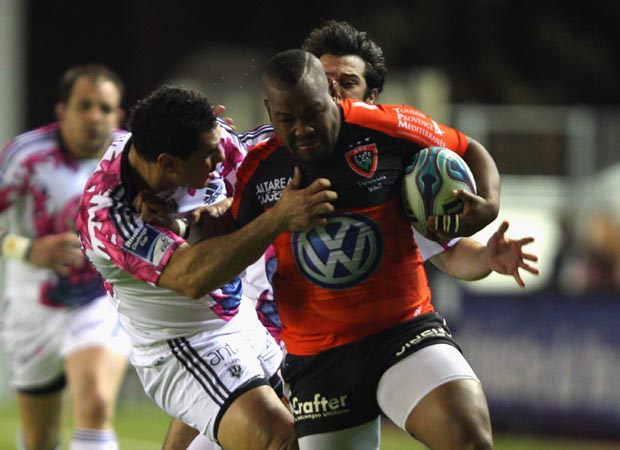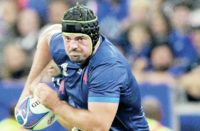 Steffon Armitage's omission from the England squad for the tour of New Zealand raises an interesting question. If, before the 2019 World Cup, some of England's leading players – say, Billy Vunipola, Owen Farrell and Manu Tuilagi – have been tempted to go to Top 14 clubs by the huge salaries available in France, will the RFU's exclusion policy on overseas-based English players still hold?
Steffon Armitage's omission from the England squad for the tour of New Zealand raises an interesting question. If, before the 2019 World Cup, some of England's leading players – say, Billy Vunipola, Owen Farrell and Manu Tuilagi – have been tempted to go to Top 14 clubs by the huge salaries available in France, will the RFU's exclusion policy on overseas-based English players still hold?
There is nothing far-fetched in that scenario given that some French clubs are in a position already to pay salaries that are significantly bigger than the combined wages that English internationals earn from being contracted to a Premiership club and England.
Defenders of the RFU's current position argue that it cannot afford to budge an inch because, if it does, the floodgates will open and all England's best talent will soon be playing for French clubs. And yet, despite its staunch adherence to the exclusion policy, the RFU technocrats have inserted the caveat that an overseas-based player could be considered in ‘exceptional circumstances'.
By doing that they have conceded already that the policy is not cast-iron, and therefore that they do not have blind faith in it. That is called pragmatism. From the RFU and Premiership perspectives it is understandable that they do not want to lose Test stars to France, and therefore I have no quarrel with them warning England players that if they go to the Top 14 their selection chances will be jeopardised. However, that protectionism should be offset by pragmatism. If overseas-based English players merit inclusion because they are world-class and will enhance England's chances of winning the big prizes, then invoke the ‘exceptional circumstances' clause.
After the season that Steffon Armitage has had for Toulon, culminating in an outstanding performance to help his club to win back-to-back Heineken Cup titles last weekend by outplaying Saracens in Cardiff, he definitely merits inclusion.
Stuart Lancaster's main objective as England head coach is to win the 2015 World Cup – not do well in it, but win it. In order to do that he should be in a position to select any player he believes will enhance England's cause.
Instead, Lancaster is in the process of shutting the door on an unorthodox openside flanker, or No.8, who could bring a different dynamic to his back-row, not least as a ball winner at the breakdown. Added to which, with Chris Robshaw as his only openside option at present, the England head coach is one injury away from being badly exposed. Matt Kvesic has gone backwards since going to Gloucester, Will Fraser has been sidelined for the whole season with injury, and Tom Johnson is more blindside than openside.
However, even if they were challenging Robshaw more strongly for the No.7 shirt, Armitage's attributes and experience put him well ahead. Not only is he as difficult to dislodge as a barnacle when he attaches himself to the tackle ball, winning more turn-overs in a match than some Premiership opensides win in a season, he is also a barrelling threat of a carrier with impressive acceleration.
All of this, and more, was evident in the Heineken Cup final as Toulon brushed Saracens aside to retain European club rugby's top prize, and earlier this week Armitage, 28, was named by ERC as their European Player of the Year.
Lancaster has made it clear he supports the overseas embargo, saying, “It's not my rule, but I agree with it. It is important for our best players to play in England. I would support it as a national coach.”
An alternative view is that the potential exodus of English players to France is grossly exaggerated. While a few English stars will go for the money, it is unlikely to be a mass migration simply because the French marketplace is highly competitive. English players will be competing with the rest of the world to secure Top 14 contracts. The French club game is an international melting pot with New Zealanders, South Africans, Australians, Welsh, Irish, Scots, Italians, Fijians, Samoans, Tongans, Georgians and Russians all vying for places in Top 14 squads.
In Armitage's case I would argue that Lancaster, and architects of the RFU policy such as Rob Andrew, are excluding a player who could enhance England's chances of winning the World Cup. They have the chance on this tour of New Zealand to put that supposition to the test, and by not taking it we will never know what the Toulon back-rower could have bought to the party.
It is a lack of pragmatism that could harm England's 2015 prospects.


























